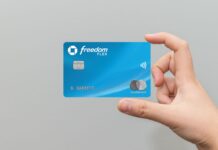NOTICE: This post references card features that have changed, expired, or are not currently available
 UPDATE: After this post was written, Chase introduced two new cards: Chase Freedom Unlimited which offers 1.5 points per dollar on all spend and Chase Sapphire Reserve which offers 3X points for travel and dining. For a look at how these new cards work in combination with others, please see: The BEST travel rewards card and FU Sapphire Reserve: Better combos exist .
UPDATE: After this post was written, Chase introduced two new cards: Chase Freedom Unlimited which offers 1.5 points per dollar on all spend and Chase Sapphire Reserve which offers 3X points for travel and dining. For a look at how these new cards work in combination with others, please see: The BEST travel rewards card and FU Sapphire Reserve: Better combos exist .
This is part 1 of a multi-part series of “best credit card combos”. The goal is to find the combination of 2 or 3 credit cards that, together, offer the best rewards for day to day spend. The full series (not yet completed) will likely be as follows:
- Best credit card combos: Ultimate Rewards
- Best credit card combos: Membership Rewards
- Best credit card combos: ThankYou Rewards
- Best credit card combos: Mixed rewards
- Best credit card combos: Cash Back
I’ve written before about which one credit card is best for spend (found here). The options listed there are great for the person who wants to keep things simple. If you’re willing to juggle a few cards, though, you can do quite a bit better by using the right card for the right situation. For example, one can use a Chase Ink card for its 5X (5 points per dollar) categories and for gas (2X) and use the Sapphire Preferred card for restaurants and travel (2X). Since Ultimate Rewards points are combinable across cards you own plus across significant other cards with the same home address, this is a great way to rack up a pile of Ultimate Rewards through spend.
Note that it is always possible to earn more points through credit card signup offers. This post is not about that. This post is for those who prefer to get a few cards and stick with them over time. If you’d like to read about how I plan to replenish my Ultimate Rewards stockpile, please see: Chasing Ultimate Rewards.
Analysis
I used my Credit Card Analysis Spreadsheet to estimate the number of points per dollar one could earn with various combinations of cards that earn Ultimate Rewards points. I also took into account the “cost per point” of using this combination of cards (and paying the annual fees, if any) by comparing to a no-fee 2% cash back card. In other words, annual fees plus the earnings you would have had with a 2% cash back card are accounted for as your “cost”.
I evaluated the following combinations:
- Chase Freedom + Sapphire Preferred
- Chase Freedom + Ink Plus
- Chase Freedom + Ink Cash
- Chase Freedom + Sapphire Preferred + Ink Cash
- Chase Freedom + Sapphire Preferred + Ink Plus
I didn’t evaluate any cards that are no longer available (such as Sapphire, Ink Classic, etc.) even though some readers may still have those cards. I included the Freedom card in all analyses since it has no fee, but still earns a very healthy 5X bonus on changing quarterly categories.
Assumptions
In evaluating various combinations of cards, I made the following assumptions about spend:
- Total annual spend: $30,000
- Spend would be divided into the following categories:
- Travel: 15%
- Dining: 20%
- Gas: 15%
- Grocery: 25%
- Other bonus categories: 5%
- All other: 20%
- The cardholder would always use the card that earns the most at any given location (e.g. at a restaurant they would use the Freedom card during a quarterly 5X category bonus (up to a total of $1500 spend) and would otherwise use the Sapphire Preferred (2X) or Ink Cash (2X).
- Chase Freedom 5X bonus categories are based on the 2015 Freedom 5X calendar
- While it is often possible to increase rewards by buying gift cards at 5X, this analysis does not take that into account
Results
| Card Combo | Avg Points Per $ | Annual Fee Total | Cost Per Point vs. 2% Card |
|---|---|---|---|
| Chase Freedom + Sapphire Preferred | 1.9 | $95 | 1.22 |
| Chase Freedom + Ink Plus | 1.9 | $95 | 1.22 |
| Chase Freedom + Ink Cash | 2.01 | $0 | 0.99 |
| Chase Freedom + Sapphire Preferred + Ink Cash | 2.16 | $95 | 1.07 |
| Chase Freedom + Sapphire Preferred + Ink Plus | 2.16 | $180 | 1.20 |
As you can see in the table above, the combination that earns the most points per dollar is the trifecta of the Freedom + Sapphire Preferred + Ink (Ink Cash or Ink Plus). When you take into account annual fees, though, the best combinations are:
- Chase Freedom + Ink Cash: 2.01 points per dollar; no annual fee; .99 cents per point
- Chase Freedom + Sapphire Preferred + Ink Cash: 2.16 points per dollar; $95 annual fee; 1.07 cents per point
Recommendations
If you’re interested in doubling down on Ultimate Rewards cards, the first thing to do is to add your own spending assumptions to the Google Docs spreadsheet (make a copy first so that you can edit cells). If the results come out similar to those presented above, then I would recommend the following:
Single Individual
Go with the Chase Freedom, Sapphire Preferred, and Ink Cash combination. The advantage of this combination is that the Sapphire Preferred gives you the ability to transfer points to loyalty programs or book travel for 1.25 cents per point value. Use the Freedom card whenever it offers 5X. Use the Sapphire Preferred card for travel and dining (2X). Use the Ink Cash card for office supplies, cable, phone, and internet (5X), and for gas (2X).
Couple
Since Chase allows couples living together to move points freely between each other, a couple can do better by keeping only one card with a fee. So, I would recommend the following:
Person 1: Chase Freedom, Sapphire Preferred, and Ink Cash
Person 2: Chase Freedom, Sapphire Preferred (free authorized user card from Person 1), and Ink Cash
The advantage of Person 2 having their own Freedom and Ink Cash cards is that it expands the 5X category limits over sharing a single account for each of those cards. If the expanded limits aren’t needed, person 2 could always, instead, carry an authorized user / employee card from Person 1’s accounts.





I have Freedom, Unlimited, CSP, and CSR. Does this mean my wife can also open the same cards to get the bonus even if she’s an authorized user on Freedom, Unlimited, and CSP?
I’m curious to know if any couples have attempted really play the game by alternating opening the cards. For example, husband opens Freedom year 1, then wife opens Freedom year 2, husband closes Freedom and reopens it in 24 months while keeping the UR points in wife’s Freedom.
From what I have gather so far, opening bonuses are by far much more valuable than earning points. It seems like quite a feat to juggle so many cards between 2 people but is it possible? Have anyone done it?
Yes, your wife can open the same cards despite being an AU on yours. I haven’t done exactly what you wrote, but we have certainly juggled around cards and points in a similar way. The main “gotcha” is Chase’s new 5/24 Rule where they often won’t approve an application if you’ve opened 5 or more cards from any bank in the past 24 months
Great article! Thanks! What do you think of the Barclaycard Arrival Plus and Costco Citi Anywhere Visa Card combination? Barclaycard has 2% rewards on everything and Citi has 4% on gas, 3% travel/dining, 2% on Costco purchases (and if with an executive membership another 2% on Costco purchases, which I think will pay for the entire $110 annual fee since I spend at least $5,500/year), and 1% other purchases. I plan to use the Citi Costco card only for gas, travel, dining and Costco purchases and use the Barclaycard for the rest of my purchases like rent, utilities, auto/renter’s/disability/umbrella insurances, auto repairs, entertainment subscriptions (Netflix, Amazon, Google Music, Audible) and outside-of-Costco shopping all of which will probably cost me approximately $37,000/year. Another reason why I like the Barclaycard is that it has no foreign transaction fees. It does have an annual $89 fee.
I am also considering Citi Double Cash Card as my US card then partner it with Discover it Card which I will only use when it is in a 5% category and also when I travel abroad as it has no foreign transaction fees. Also both cards have no annual fees.
Which credit card combo do you think is better? I would appreciate any input from you and the other readers. Thanks!
The new Costco card is pretty impressive. It appears to be pretty similar to the Sam’s Club MasterCard. The post I wrote about Cash Back Combos may be more helpful for you. I hope to write an updated version of it soon, but in the meantime, you can find it here: https://frequentmiler.com/2015/06/22/best-credit-card-combos-cash-back/
Thanks for your reply!
I think I have made a final decision for the combo: Costco Citi + Citi Double Cash + Capital One Quicksilver (for foreign travel)
Sounds good to me!
Also, I cannot wait for your post regarding combos that includes the Costco Anywhere Visa Card! =)
[…] Best credit card combos: Ultimate Rewards […]
[…] Best credit card combos: Ultimate Rewards […]
Hi FM,
My wife and I have both the Sapphire Preferred. We don’t have a business and applied for the Freedom recently and got denied. We will cancel my wife’s Sapphire this fall, when the anniversary comes up, as you suggested, and just use the authorized user card. I do understand that we need to transfer the UR points to my account before doing so, so she doesn’t lose the points. We will try to ask to downgrade her CSP to Freedom. If so, is it possible to transfer the Freedom cash to points on my wife’s UR account (or to my UR account, same household) if she doesn’t have the Sapphire anymore?
Yes, Freedom cash is stored as Ultimate Rewards points. You can freely transfer those points from your or your wife’s Freedom account to any other Ultimate Rewards account owned by you or your wife. Caution: if neither of you have the Sapphire Preferred card then you won’t be able to transfer to airlines, hotels, Amtrak. Nor will you be able to use the points for 1.25 cents value each towards travel.
“Chase Freedom + Ink Cash: 2.01 points per dollar; no annual fee; .99 cents per point”
Don’t these cards need to be paired with a fee card (Ink Plus or CSP) to become true Ultimate Rewards cards? Otherwise they are poor 2.01% cash back cards. Your subsequent article proves one can earn nearly 3% cash back with a 2 card combo.
This also speaks to the previous comment of CSP being overrated. It is actually essential for people who want the Ultimate Rewards transfer partners but can’t get approved for an Ink Plus card.
Yes, that’s correct. That said, until you cash the points out, they’re still Ultimate Rewards points so if you later get a premium card (Sapphire Preferred or Ink Plus), you can still use the earned points from Ink Cash and Freedom to transfer to airlines & hotels. Even if you get a spouse or significant other with a premium card that would hold true.
[…] Best credit card combos: Ultimate Rewards (earn up to 2.16 points per dollar) […]
[…] Best credit card combos: Ultimate Rewards […]
[…] Best credit card combos: Ultimate Rewards […]
[…] Best credit card combos: Ultimate Rewards […]
[…] Best credit card combos: Ultimate Rewards […]
[…] Best credit card combos: Ultimate Rewards […]
[…] Best credit card combos: Ultimate Rewards – The optimal combination of Ultimate Rewards earning cards to ensure the highest return on day to day spend. […]
No love for Discover with 5% cash back categories, or Sams Club 5% of gas (other gas branded cards also)? 3% Amazon card?
Did I misunderstand and this is only a chase card comparison?
This post was specific to earning Chase Ultimate Rewards points
A bit early, but for the ‘mixed rewards’ section, consider BofA Cash Rewards + BofA Travel Rewards + FIA Fidelity Rewards + BofA Preferred Rewards Program
Thanks Ron. I could do that as its own post. Can all three credit cards points be combined? Only the first two would be enhanced with the Preferred Rewards program, right?
They can’t quite be combined…but the net result is cash back. For example, because the Travel rewards and FIA Fidelity Rewards both use the WorldPoints program, you can transfer points to the Fidelity account to effectively get a minimum ~2.7% cashback on everything.